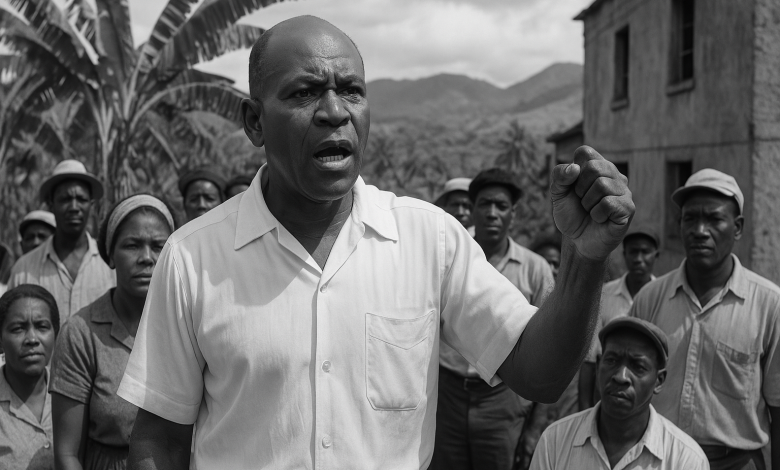Dominica Trade Union (DTU)

The Dominica Trade Union (DTU), established on January 11, 1945, holds the distinction of being the nation’s first formal trade union, marking a pivotal moment in Dominica’s labor history. Its formation signified a collective effort to address and improve the working conditions and rights of Dominican workers.
Founding and Early Leadership
The inception of the DTU was spearheaded by Emmanuel Christopher Loblack, a mason employed by the Public Works Department, alongside Ralph Nicholls and Austin Winston. Their motivation stemmed from interactions with the Moyne Commission, particularly influenced by Lord Citrine, who advocated for the establishment of trade unions across the Caribbean to address labor grievances. This guidance led to the creation of the DTU, with Loblack emerging as a central figure in the union’s early activities.
Rapid Expansion and Achievements
Within six months of its establishment, the DTU experienced significant growth, expanding to 26 branches across the island. One of its notable early achievements was successfully advocating for the reduction of working hours for laborers and domestic workers, shifting from the longstanding 6 a.m. to 6 p.m. schedule to a more manageable timeframe. Additionally, the union played a crucial role in organizing port workers, ensuring better representation and working conditions for this vital sector.
Advocacy and Legislative Impact
The DTU was instrumental in championing the rights of tenant farmers, who faced the constant threat of eviction by landowners. Through persistent advocacy, the union contributed to the enactment of the Agricultural Small Tenancies Act of 1953, providing legal protections and security of tenure for small-scale farmers. This legislative milestone underscored the union’s commitment to addressing systemic issues affecting the agricultural community.
Challenges and Evolution
Despite its early successes, the DTU encountered internal challenges and external competition over the years. In December 1960, Frederick Joseph, a former DTU official, founded the Dominica Banana Employees Association, which later evolved into the Dominica Amalgamated Workers’ Union (DAWU), broadening its representation across various sectors. Further diversification of the labor movement occurred in January 1965 when port workers and dockers departed from the DTU to establish the Waterfront and Allied Workers’ Union under the leadership of Patrick Roland John.
Legacy and Current Status
Over the decades, the DTU’s membership has fluctuated, reflecting broader changes within Dominica’s labor landscape. At its zenith, the union boasted approximately 8,000 members, but this number has declined to several hundred in recent years. Despite this reduction, the DTU remains active and continues to be affiliated with the International Trade Union Confederation (ITUC), maintaining its presence in the global labor movement.
The DTU’s legacy lies in its foundational role in advocating for workers’ rights in Dominica. Its efforts have paved the way for subsequent labor organizations and have contributed significantly to the advancement of fair labor practices and legislation within the country.




